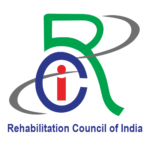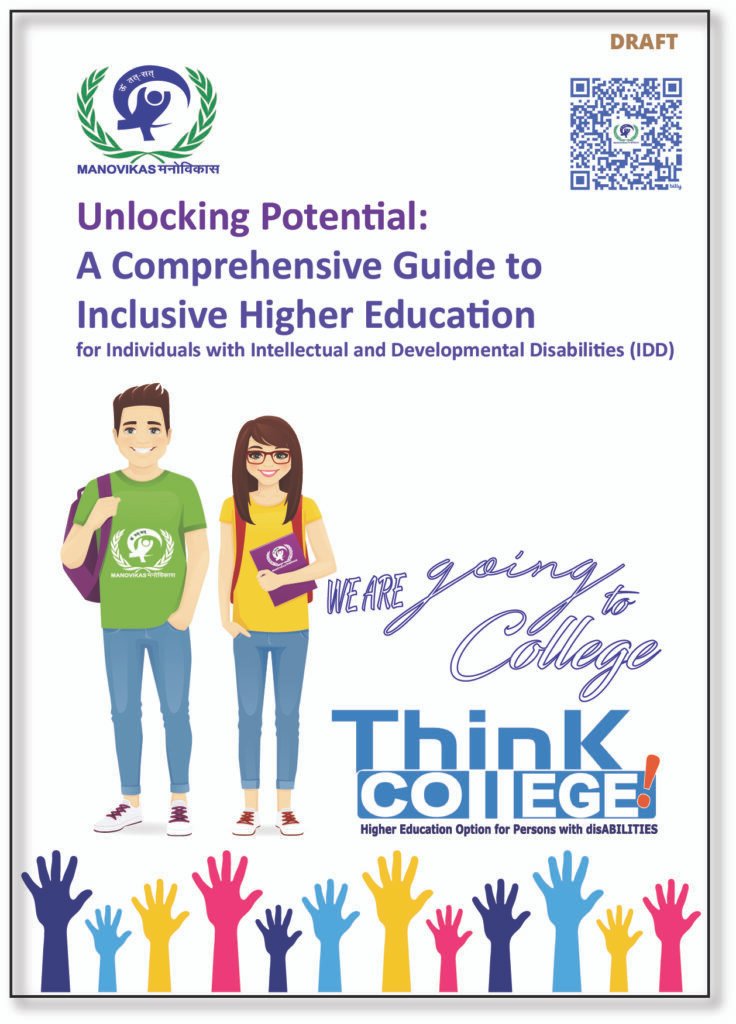
Rci approved CRE
National Seminar on
Reasonable Accommodation for Persons with Intellectual and Developmental Disabilities (IDD) in
Inclusive Higher Education Institutions and Universities
We warmly welcome you! for a delightful experience of knowledge sharing and networking.
Showcase your work through a paper and poster presentation on inclusive higher education.
Objectives
- Promote reasonable accommodations for people with intellectual and developmental disabilities (IDD) in higher education by raising awareness and facilitating collaboration among stakeholders.
- The National Seminar seeks to provide a platform for sharing experiences, best practices, and innovative approaches.
- It also aims to empower individuals with IDD to pursue higher education by providing the necessary information and resources.
Outcomes
The seminar aims to generate actionable insights and recommendations for promoting reasonable accommodation and inclusivity in Higher Education Institutions and Universities by bringing together stakeholders from diverse backgrounds. Ultimately, it seeks to contribute to creating a more inclusive and equitable higher education landscape where every individual, regardless of disability, has the opportunity to fulfil their academic potential.
Target Audience
- Professors, Lecturers, and Special Educators
- Counsellors
- Representatives of Universities and Colleges establishing Equal Opportunity Cells
- Clinical Psychologists
- Rehabilitation Counsellors
- Rehabilitation Social Workers
- Speech Therapists
- Rehabilitation Psychologists
- Disability rights advocates and activists
- Government officials and policymakers
- Students with disabilities and their families
- Representatives from NGOs and civil society organisations working in the field of disability rights and education
Key Themes
Accessibility and Inclusivity in Higher Education Institutions:
Identifying barriers and challenges faced by persons with intellectual and developmental disabilities in accessing higher education.
Best Practices and Success Stories:
This section showcases successful initiatives and programs that promote inclusivity and support the academic success of students with disabilities.
Understanding Reasonable Accommodation
Exploring the concept of reasonable accommodation and its application in the context of higher education.
Policy Framework and Implementation:
Examining existing policies and frameworks related to reasonable accommodation and proposing recommendations for improvement.
Capacity Building and Training
Discussing the training needs of educators and support staff to effectively accommodate students with disabilities in higher education settings.
Collaboration and Partnerships
Highlighting the importance of collaboration between Higher Education Institutions, government agencies, NGOs, and other stakeholders in promoting inclusivity.

The seminar will feature keynote presentations, panel discussions, workshops, and interactive sessions to facilitate knowledge sharing and networking among participants. Additionally, a call for paper and poster presentations will allow researchers and practitioners to showcase their work and contribute to the discourse on inclusive higher education.
Seminar Paper Topics
- Effective Implementation Strategies: Explore strategies for effectively implementing reasonable accommodations in higher education, considering diverse student needs and institutional contexts.
- Legal Framework and Policy Analysis: Analyze existing legal frameworks and policies for reasonable accommodation for persons with intellectual and developmental disabilities in higher education institutions.
- Technology and Accessibility: Investigate the role of technology in promoting accessibility and inclusivity for students with disabilities in higher education, including assistive technologies and digital learning platforms.
- Inclusive Curriculum Development: Examine approaches to developing inclusive curriculum and instructional materials that accommodate diverse learning styles and abilities.
- Faculty Training and Support: Discuss the importance of training and support for faculty members in accommodating students with disabilities, including best practices and challenges.
- Student Perspectives and Experiences: Present research or case studies highlighting the perspectives and experiences of students with intellectual and developmental disabilities in higher education, including barriers faced and strategies for success.
- Parent and Family Involvement: Explore the role of parents and families in supporting the transition to higher education for students with disabilities, including advocacy and empowerment strategies.
- Peer Support and Mentoring Programs: Investigate the effectiveness of peer support and mentoring programs in promoting academic and social inclusion for students with disabilities in higher education.
- Transition Planning and Postsecondary Education: This section examines the transition planning process for students with intellectual and developmental disabilities from secondary to postsecondary education, including support services and resources available.
- Evaluation and Assessment Practices: Discuss evaluation and assessment practices for students with disabilities in higher education, including accommodations for exams and alternative assessment methods.
Poster Topics Ideas
- Accessible Campus Infrastructure: Showcase initiatives or designs for creating accessible campus environments for students with disabilities, including accessible buildings, pathways, and facilities.
- Inclusive Classroom Practices: Present strategies and resources for promoting inclusive classroom environments that accommodate diverse student needs and foster academic success.
- Student Support Services: Highlight support services and resources available to students with intellectual and developmental disabilities on campus, including counselling, academic advising, and disability services.
- Assistive Technology Solutions: Demonstrate innovative assistive technology solutions to enhance accessibility and facilitate learning for students with disabilities in higher education.
- Student-Led Initiatives: Showcase student-led initiatives and advocacy efforts to promote inclusivity and raise awareness about the needs of students with disabilities on campus.
- Faculty Training Programs: Present information about faculty training programs and resources available to support educators in accommodating students with disabilities in their classrooms.
- Research Findings and Best Practices: Share findings from research studies or evaluations on best practices for supporting students with intellectual and developmental disabilities in higher education settings.
- Collaborative Partnerships: Highlight successful partnerships between higher education institutions, disability advocacy organisations, and other stakeholders to promote inclusivity and accessibility.
- Accessible Information Resources: Provide examples of accessible information resources and materials developed for students with disabilities, including textbooks, course materials, and digital resources.
- Student Success Stories: Share inspiring stories or testimonials from students with intellectual and developmental disabilities who have overcome barriers and achieved academic success in higher education.
